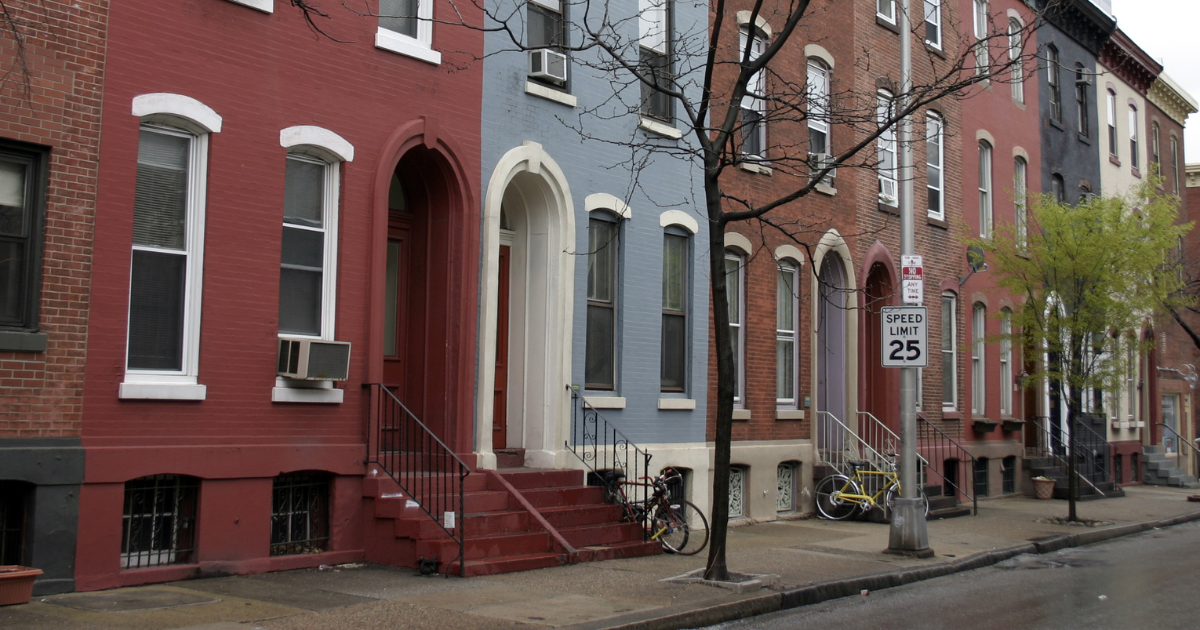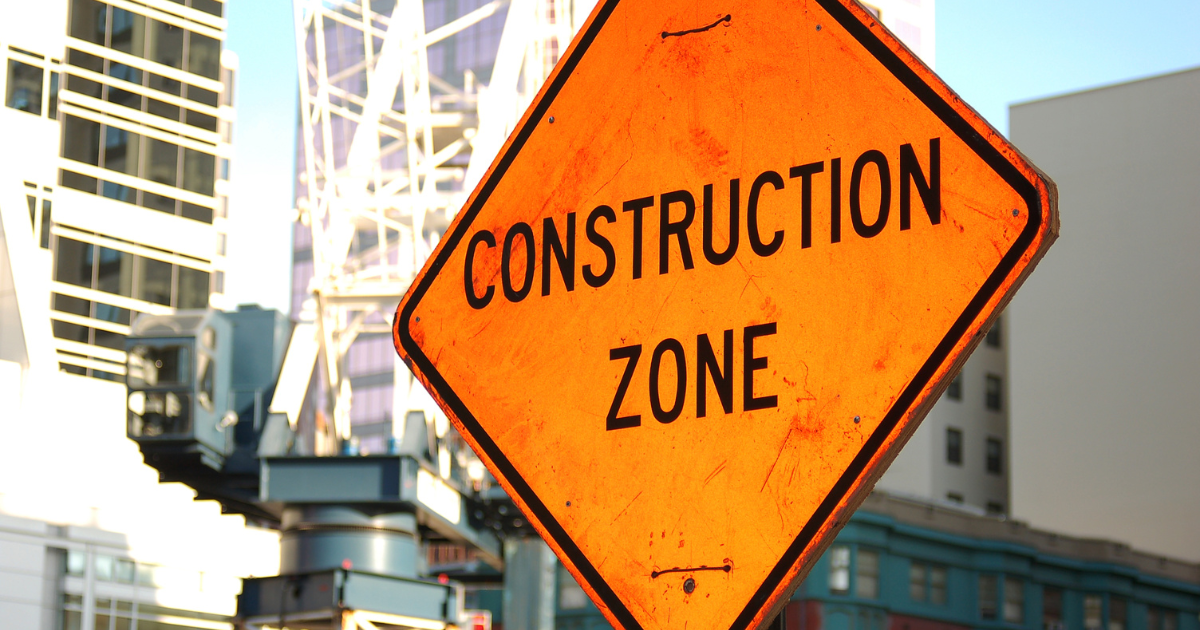Builder Lacks Insurance Coverage For Faulty Workmanship
What happens when a newly constructed home is not built in a workmanlike manner? The homeowner will certainly look to the builder for remediation....
6 min read
Alan Nochumson and Alex Goldberg : Apr 29, 2025 9:00:00 AM

In a memorandum opinion recently issued by the Pennsylvania Commonwealth Court in Philadelphia v. Epstein, 2025 Pa. Commw. LEXIS 65 (Apr. 2, 2025), the legality and constitutionality of large-sum fines resulting from a property owner’s failure to timely respond to governmental violations against their property was upheld.
In summer 2018, the city of Philadelphia’s Department of Licenses and Inspections (L&I) issued an initial notice of violation and order to a property owner for alleged code violations for a property they owned in Philadelphia, the opinion said.
The violation notice identified improperly removed construction debris, directing the property owner to clear debris from both the street and the rear lot of the property, as well as the absence of necessary governmental permits in the process of doing so.
In the violation notice, L&I specified that the property owner was required to obtain zoning permits and approval from the Water Revenue Bureau for stormwater management related to tree removal and grading on a steep slope, the opinion said.
Following a property re-inspection, L&I issued a final warning, confirming that the code violations remained unaddressed and warned that the failure of the property owner to so comply with the code violations would result in formal enforcement actions by the city, the opinion said.
Ultimately, the city filed a complaint in the Philadelphia County Court of Common Pleas, seeking a permanent injunction, fines and re-inspection fees against the property owner.
Thereafter, the parties entered into a court-approved settlement, under which the property owner committed to correcting the code violations within 90 days by submitting the required permit applications, halting any additional construction without an approved stormwater management plan, and granting L&I inspectors access to the property, the opinion said.
Critically, the court-approved settlement warned that failure to remedy the code violations would trigger an automatic fine of $2,300, with additional daily penalties of the same amount starting immediately, the opinion said.
Despite the foregoing, continued court hearings over the course of the following months revealed that the property owner had not fulfilled their settlement obligations with the city.
Afterwards, the trial court issued further directives—the property owner was to take all reasonable steps to obtain the necessary zoning permits and ensure that L&I marked the code violations as resolved, otherwise the daily fines would resume in April 2020.
The COVID-19 pandemic delayed court proceedings until April 2021.
The city then requested a default judgment against the property owner, which the trial court entered.
Although the property owner, now represented by counsel, moved to open the default judgment in October 2021, the trial court denied the request.
The property owner appealed the trial court’s ruling in June 2022, but the matter was temporarily stayed after both parties agreed to seek a resolution in the trial court, the opinion said.
Upon remand, the trial court vacated the monetary damages levied against the property owner in favor of the city but upheld the default judgment, setting a new hearing to assess the fine under the circumstances.
At the bench trial held in November 2022, a L&I inspector testified about the code violations and enforcement timeline. The property owner testified that they had hired legal and technical professionals in an attempt to resolve the matter and that the property owner was unable to pay the mounting fines, which by then totaled $98,000.
On Feb. 6, 2023, the trial court issued a court order imposing a statutory fine of $65,333.33, along with a re-inspection fee of $1,350.
In the court order, the property owner was compelled to correct the outstanding code violations no later than May 1, 2023.
In its ruling, the trial court emphasized that the full statutory fine accrued as of Nov. 8, 2022, could have totaled $3,456,900—a figure based on 1,503 days of noncompliance with the violation notice with daily penalties of $300 for one violation and $2,000 for the remaining violation.
However, the trial court stated that it ultimately exercised discretion in significantly reducing the assessed fine to reflect a fair balance between the severity and duration of the code violations, citing to the Pennsylvania Supreme Court’s rulings in Commonwealth v. Church, 522 A.2d 30 (Pa. 1987), and Commonwealth v. Eisenberg, 98 A.3d 1268 (Pa. 2014), which held that fines need not be strictly proportional to the harm caused as long as they serve the purposes of punishment and deterrence.
Following the issuance of the court order, the property owner filed a post-trial motion upon constitutional and statutory grounds, arguing that the fine was “excessive and punitive” and violated the Home Rule Act, Article I, Section 13 of the Pennsylvania Constitution, and the Eighth Amendment of the U.S. Constitution. In the post-trial motion, the property owner also claimed that the fine conflicted with the city's Home Rule Charter.
After the trial court denied the post-trial motion, the property owner filed a timely appeal to the Commonwealth Court.
On appeal, the following issues were addressed: whether cumulative or aggregate fines issued by the city conflict with the Home Rule Act and the city’s Home Rule Charter; whether the statutory fine imposed by the rial court violates the excessive fine prohibitions of the Pennsylvania Constitution and the U.S. Constitution; and whether trial court erred in its calculation of the maximum allowable fine prior to reducing and imposing the statutory fine on the property owner.
The property owner argued that the aggregate fine imposed—calculated on a per-day basis over an extended violation period—exceeds the authority granted to the city under the Home Rule Act and the city’s Home Rule Charter, which the property owner contends cap fines at $2,300 per violation, subject to limited annual increases not to exceed $400.
Upon examination of the Home Rule Act and relevant precedent, the Commonwealth Court rejected the property owner’s contention.
The Commonwealth Court in Epstein pointed to Article IX, Section 2 of the Pennsylvania Constitution and its ruling in Crawford v. Commonwealth, 326 A.3d 850 (Pa. 2024) for the proposition that municipalities with home rule charters may exercise any power not expressly denied by the Constitution, the General Assembly, or their own charters.
The Commonwealth Court in Epstein reasoned that Section 17 of the Home Rule Act confirms this broad authority, explicitly stating that municipalities may adopt “ordinances, rules, and regulations necessary and proper” for executing their functions, including enforcement by “fines, forfeitures and penalties.” While it provides for a fine not exceeding $2,300, the Commonwealth Court in Epstein noted that plain language of the provision contemplates per-violation fines, and nothing in the text prohibits the city from defining each day of a continuing code violation as a separate offense.
Further, according to the Commonwealth Court in Epstein, the final sentence of Section 17 explicitly authorizes cities of the first class, such as Philadelphia, to increase fines by up to $400 annually, provided that the total amount per violation does not exceed $2,000.
As a result, the Commonwealth Court in Epstein concluded that this statutory language clearly regulates per violation fines, not total aggregate penalties where a code violation persists across multiple days.
The Commonwealth Court in Epstein also relied upon its recent ruling in Philadelphia v. Neely (Pa. Cmwlth., No. 480 C.D. 2022, filed March 25, 2024), where it confronted the same question and affirmed the city’s authority to impose cumulative daily fines for continuing violations of the code.
In Neely, the Commonwealth Court held that the Home Rule Act does not prohibit such fines and that the longstanding municipal practice of treating each day as a new code violation aligns with the legislative purpose of deterrence and compliance enforcement.
Accordingly, the Commonwealth Court in Epstein held that the imposition of daily fines under the Philadelphia Code—each constituting a separate violation—is not inconsistent with the Home Rule Act or the city’s charter, and, in so holding, it agreed with the trial court’s ruling that the fine imposed on the property owner, though substantial in the aggregate, reflects an enforcement mechanism that is both authorized by law and necessary to promote timely compliance and protect the public from the consequences of continued violations, especially where public safety is implicated.
The Commonwealth Court in Epstein next discussed the applicability of the excessive fines clause of the Eighth Amendment to the U.S. Constitution, as well as its counterpart in the Pennsylvania Constitution, which protects against fines that are “grossly disproportional to the gravity of a defendant’s offense.”
As recognized by the Commonwealth Court in Epstein, this constitutional protection serves as a check on the government’s power to impose penalties for criminal or civil violations, ensuring that the punishment does not exceed the severity of the offense committed.
Nonetheless, the Commonwealth Court in Epstein cautioned that, in interpreting this constitutional protection, courts have consistently held that fines which are cumulative in nature—imposed for ongoing violations—are not unconstitutional as long as they are within statutory parameters and reflect a legitimate public interest in deterring future violations.
The Commonwealth Court in Epstein disagreed with the property owner’s assertion that the fine imposed by the trial court was unconstitutionally excessive, especially in light that the fine would render the development of the property, a vacant lot, financially impossible.
In doing so, the Commonwealth Court in Epstein reiterated that the value of the property is not a relevant factor in determining whether a fine is excessive.
Relying upon the Commonwealth Court’s ruling in Philadelphia v. Joyce, 242 A.3d 993 (Pa. Cmwlth. 2020) and other cases, the Commonwealth Court in Epstein stated that fines are not meant to correspond directly to the value of the property involved in the code violation, but rather to the duration and severity of the noncompliance and the potential risks it poses to public safety and, as such, a fine can still be deemed appropriate even if the property is of relatively low value, as the harm from code violations or unsafe conditions can have significant consequences regardless of the property's worth.
The Commonwealth Court in Epstein stated that whether the property owner can afford to pay the fine is similarly irrelevant. Rather, according to the Commonwealth Court in Epstein, the focus must remain on the nature of the violation and the need to impose a fine that serves as both punishment and deterrent.
Finally, the Commonwealth Court in Epstein rejected the property owner’s claim that the fine is disproportionate to the offense by the fact that the fine was imposed for code violations that spanned 1,503 days—a period of over 4 years.
Therefore, the Commonwealth Court in Epstein emphasized that the trial court appropriately considered the length of time the property owner had to remediate the code violations and concluded that the fine, while significant, was not excessive given the extensive noncompliance and the need to address safety risks associated with the violations.
Reprinted with permission from The Legal Intelligencer © 2025 ALM Media Properties, LLC. All rights reserved. Further duplication without permission is prohibited. For information, contact 877-257-3382, reprints@alm.com or visit www.almreprints.com.

What happens when a newly constructed home is not built in a workmanlike manner? The homeowner will certainly look to the builder for remediation....

As real estate tax foreclosure sales will be taking place again in Philadelphia, it is as good a time as any to review how the appellate courts in...

In Philadelphia, recently, there has been a push in City Council to limit the ability for non-profit organizations and individuals to take over...